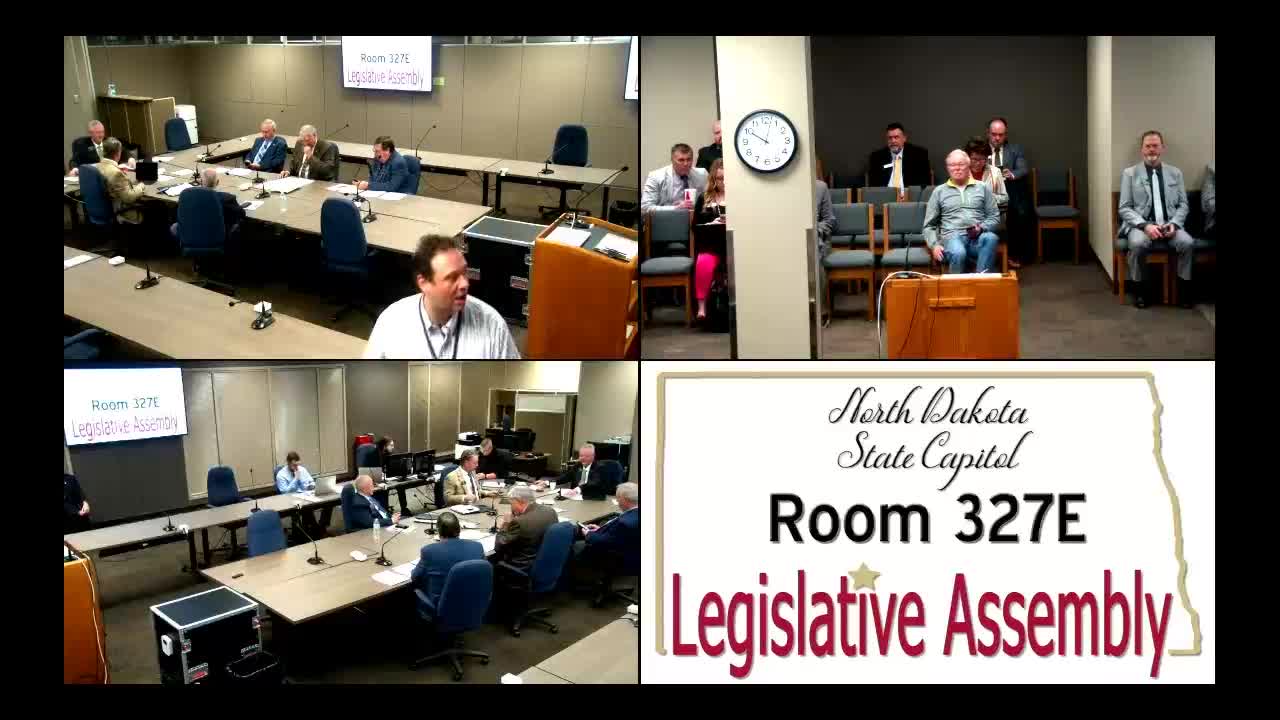Conference committee stalls on House Bill 1176 over 'skin in the game' dispute
Get AI-powered insights, summaries, and transcripts
Subscribe
Summary
A conference committee on House Bill 1176 adjourned without resolving a dispute over a "skin in the game" provision for primary-residence property tax relief. Lawmakers debated alternatives, including whether voter-approved bond levies should be excluded, and noted a new printed draft was being circulated.
At a conference committee meeting on House Bill 1176, lawmakers adjourned without resolving a disagreement over a "skin in the game" provision that would affect the primary-residence property tax relief formula, saying the Senate was not prepared to concede and that more work was needed.
The committee discussed a new draft (referred to as O15) addressing gap funding and caps if levies fall because of unexpected valuation increases; Legislative Council staff were printing copies for members. The central unresolved issue was whether homeowners should retain some tax liability (the so-called "skin in the game") as a condition of receiving the primary-residence tax credit.
Senator Weber said the Senate remained "in a holding pattern" on the skin-in-the-game question, expressing concern about long-term effects if calculations reduced many homeowners' levies to zero. "If we get into the scenario eventually you're trying to get, you know, homes down to 0... there's concern about that," he said.
Representative Nady raised equity concerns about that approach, saying, "There's 30 thou as I said earlier, 30,000 property tax owners are currently not paying property tax. Not paying. 20,000 of those are farmsteads." He argued that a skin-in-the-game requirement could disproportionately affect low-value homeowners who are more likely to be low-income. "I just think it discriminates against the low value homeowner who are most likely low income people who are the very people that we should be helping the most," Representative Nady said.
Senator Weber replied that it was incorrect to say farmstead owners were exempt from property taxes, noting that many pay substantially more on their farmland and that the economics differ between farmstead residences and revenue-producing farmland. "It is not correct to say that they are exempt from paying property taxes," he said, adding that farmland assessments and payments must be considered.
Senator Beckettall suggested an alternative: remove the skin-in-the-game requirement and instead count voter-approved bond levies in the eligibility calculations for the primary-residence tax credit. "Would the house prefer this bill if we instituted, putting the... bond, approved bond levies back into consideration and then removing the skin of the game?" he asked, calling the two the primary cost drivers in the formula.
Representative Bosch asked for a status update on House Bill 1575, which he said remained on the Senate side in the Finance and Tax Committee. Senator Weber confirmed 1575 was "still sitting in finance and tax for now." The conference committee did not take votes on the outstanding issues.
Chairman Hedlund closed the meeting by adjourning until the Senate indicated willingness to move on the skin-in-the-game issue. "We're just gonna adjourn until you are ready to make some movement," he said.
The committee left members with a printed draft to review and no formal decisions; lawmakers signaled continued negotiation on whether to preserve some homeowner liability under the primary-residence tax credit, how to treat voter-approved school bond levies, and how to address farmstead versus residence assessments.
